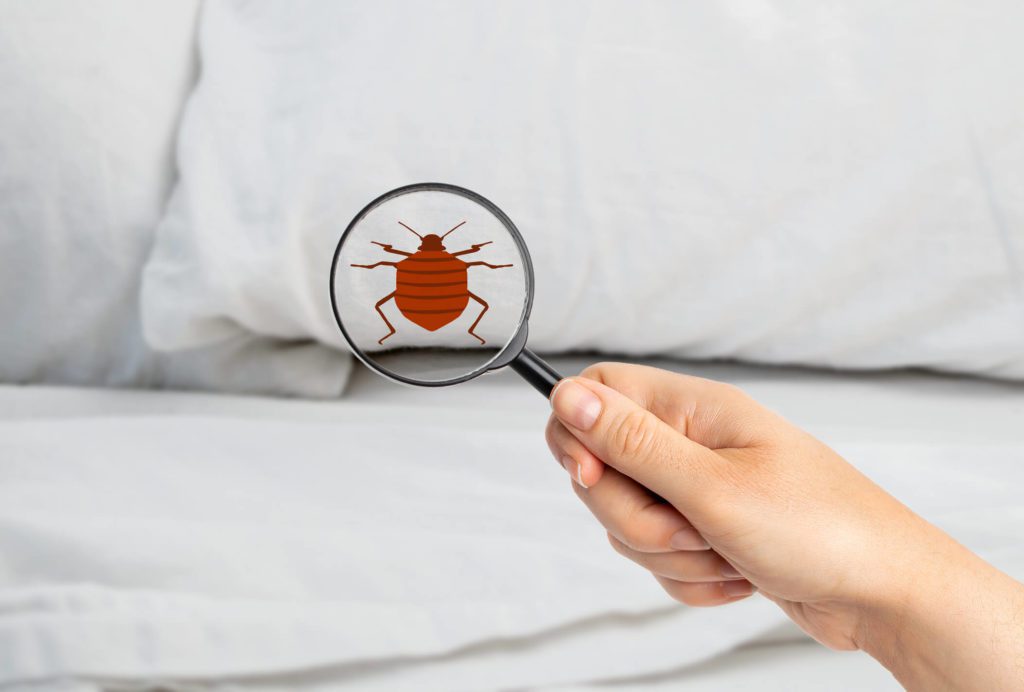Efficient Kings Bug Control Cincinnati Ohio: Dependable Solutions
Efficient Kings Bug Control Cincinnati Ohio: Dependable Solutions
Blog Article
Types of Bug Control: Which Technique Is Right for Your Infestation?
When faced with a parasite infestation, the selection of an appropriate method for insect control is crucial in effectively taking care of the circumstance. From chemical treatments to biological services, there exists a series of approaches that can be employed to address different sorts of bugs. Each approach includes its own set of considerations and advantages, making the decision-making process a nuanced one. Recognizing the nuances of each technique and examining their compatibility with the specific insect problem available is important for accomplishing long-term success in pest management. By discovering the various types of pest control methods offered, people can make educated decisions tailored to their special conditions, making sure an extra efficient and sustainable result in pest obliteration.
Chemical Insect Control
Chemical pest control entails making use of synthetic or normally obtained chemicals to handle and eradicate pest populaces successfully. This technique is generally utilized in farming, forestry, and residential settings to fight a vast array of pests, including bugs, weeds, and rats. Making use of chemical pesticides can give fast and targeted remedies to pest invasions, making it a prominent selection for lots of people and organizations.
Among the key advantages of chemical bug control is its capacity to promptly remove bugs, decreasing the risk of damages to plants, building, and human wellness. By making use of details chemicals that target specific insects, this method can successfully regulate invasions while reducing harm to advantageous organisms and the setting when applied appropriately.
Nonetheless, making use of chemical pest control likewise elevates worries regarding prospective negative effects on non-target types, water resources, and human health. It is vital to follow security guidelines, use chemicals properly, and consider different bug control approaches to decrease these dangers and ensure lasting bug administration practices.
Biological Insect Control
Organic insect control, additionally referred to as biocontrol, makes use of living organisms to decrease and take care of insect populations naturally. This method utilizes the power of nature to regulate insects without the demand for artificial chemicals. Biocontrol can entail the introduction of natural opponents of the pest species, such as pathogens, bloodsuckers, or predators, to subdue insect populations. By making use of the bug's all-natural predators or virus, biological parasite control supplies a sustainable and environmentally friendly remedy to pest management.

Mechanical Parasite Control
Using manual and physical approaches to take care of bug populaces, mechanical parasite control provides an alternate approach that does not depend on the use of living organisms or synthetic chemicals. This technique involves using obstacles, traps, or other devices to literally prevent or get rid of parasites. By blocking bug access factors or establishing catches to capture them, mechanical pest control can properly reduce problems without presenting chemicals right into the setting.
One usual instance of mechanical bug control is making use of mesh displays on doors and home windows to stop bugs Check Out Your URL from going into buildings. This easy yet efficient method works as a physical obstacle, keeping insects out while allowing for appropriate ventilation. In addition, gadgets like mousetraps, fly swatters, and ultrasonic repellents drop under the mechanical parasite control category.
While mechanical parasite control techniques can be labor-intensive and require normal tracking and upkeep, they offer a sustainable and eco-friendly option for managing parasite problems. By combining various mechanical strategies, residential property proprietors can produce an extensive pest control technique that decreases reliance on chemical pesticides.
Physical Pest Control

Some typical physical insect control techniques consist of the usage of barriers such as screens or internet to stop insect access, traps to catch and remove parasites, and hand-picking to literally eliminate parasites from plants or structures. Additionally, strategies like heat therapies can be utilized to control insects like bed insects by elevating the temperature level to levels that are lethal to the bugs.
Physical parasite control is especially beneficial in incorporated pest management (IPM) strategies, where numerous pest control methods are incorporated for effective bug management while minimizing using chemicals. By using physical insect control methods, individuals can successfully resolve insect invasions with very little ecological impact.
Integrated Pest Monitoring
When applying physical bug control approaches as part of insect monitoring techniques, Integrated Bug Administration (IPM) becomes an extensive technique that leverages different methods to properly regulate pest populaces. IPM concentrates on long-term avoidance of parasites via a combination of biological, social, physical, and chemical tools tailored to certain bug problems. Get More Information By integrating numerous control techniques, IPM aims to minimize the risks connected with insects while additionally minimizing dependence on chemical remedies.
One key facet of IPM is the focus on tracking and assessing pest populaces to figure out the most appropriate control methods. This aggressive method enables very early intervention and targeted strategies, leading to extra effective pest monitoring. Furthermore, IPM promotes eco-friendly practices by prioritizing non-chemical control approaches and just utilizing pesticides as a last resort.
Final Thought

By making use of the pest's natural killers or microorganisms, organic pest control supplies a sustainable and eco pleasant option to pest management. - Kings exterminator cincinnati
Using physical and hands-on approaches to handle bug populaces, mechanical bug control uses a different strategy that does not rely on the usage of living organisms or synthetic chemicals.A reliable strategy to taking care of pest populaces without relying on chemical or biological approaches entails the usage of physical insect control methods.When implementing physical pest control methods as component of parasite monitoring approaches, Integrated Bug Management (IPM) arises as a thorough method that leverages different techniques to efficiently manage pest populaces. Chemical insect control includes the use of pesticides, biological parasite control utilizes all-natural predators, mechanical parasite control involves physical barriers, physical insect control includes capturing or removing bugs, and integrated parasite administration combines several methods for an alternative approach to pest control.
Report this page